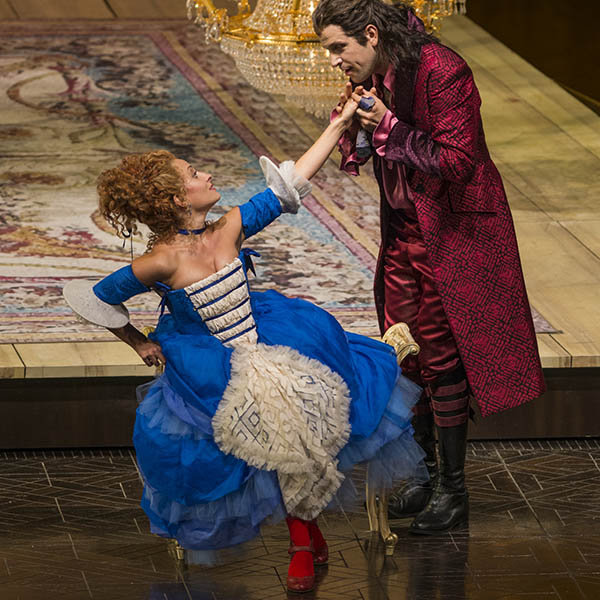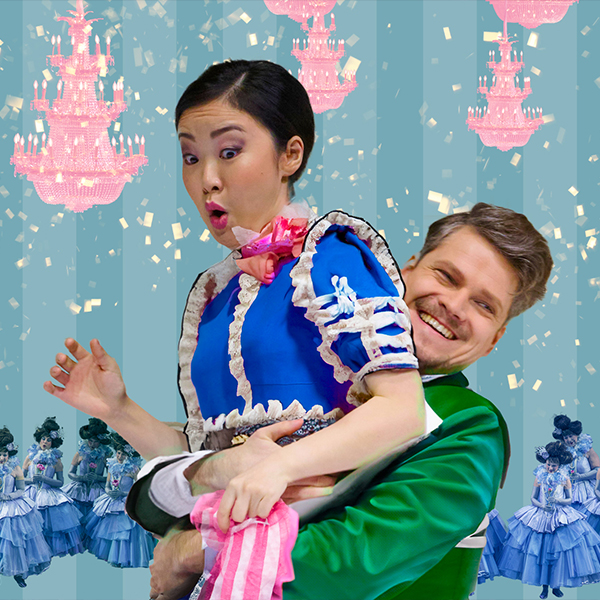October 10, 2024
Figaro's Greatest Hits
If you walked down the streets of Vienna in 1786, you'd probably have heard people singing, humming, or whistling tunes from Mozart's latest triumph, The Marriage of Figaro. Today the Figaro melodies — from it famed overture to its tuneful arias, which you can listen to below — remain fresh, characterful, and totally irresistible, as you'll discover in Lyric's production.
With this masterpiece, so full of "greatest hits," it's hard to know what to mention first! But what about Cherubino's arias? They're huge favorites of audiences everywhere. This is the Count's young page, overwhelmed by his attraction to the opposite sex. In his first aria, he confesses to the Countess's maid, Susanna, "I don't know what I am, or what I'm doing!" Mozart seems to have composed that aria in one exhilarating rush of youthful energy. What a contrast with Cherubino's second aria, sung to Susanna and her mistress: "You ladies, who know what love is." Here we have sweet, gently flowing lines — expect to leave the performance unable to get this beautiful aria out of your mind.
Susanna is onstage for nearly the entire opera, as the real linchpin for everything that goes on. The opera contains five duets and two trios, and she's the only character who sings in all of them! She also has her own vocal moment in the sun. It's a song of longing; observing her from his hiding place, her beloved Figaro thinks Susanna means the song for the Count, but we know she's thinking of Figaro himself — "Oh come, do not delay, lovely joy." She sings that she wants to crown her lover's head with roses, and in fact, the aria is so sweetly fragrant that you may well feel as if you're breathing in the scent of a luscious rose.
The Marriage of Figaro
by Wolfgang Amadeus Mozart
Erato – Tomlinson, Rodgers, Bartoli, cond. Barenboim
Warner Classics is the Official Education and Promotion Music Provider of Lyric Opera.

"Overture"
“Non più andrai”
“Voi che sapete”
The Count has a very exciting aria — aggressive and imposing — but he turns on his charm and elegance for the duet with Susanna (when begging her to meet him that night in the garden). Naturally, his romantic interest in other women distresses his wife, the Countess, who voices her sadness in two of the most glorious arias in any Mozart opera. Each shows how miraculous Mozart was in shaping even the simplest lines with a beauty and eloquence that can stop your heart. "Love, give me some remedy for my sorrow," the Countess sings in the first aria, letting her voice climb to a ravishing high note. The second aria finds the Countess nostalgic for happier days with her husband. It's a perfect example of the most restrained and stately lines often being the toughest to sing, but a truly expressive, deeply heartfelt performance of this aria can leave an audience totally mesmerized — that is, before they explode with shouts of "Brava!"
And then we have Figaro himself, the Count's valet and the opera's only character who gets three arias. He resents his master's behavior toward Susanna, and it shows in his first aria, where he's confidently defiant ("If you want to dance, little Count, I'll call the tune"). There's an irrepressibly jaunty quality and a military-style energy to his second aria, when he's trying to encourage the miserable Cherubino, who's about to be sent off to the army. And finally, in the last act, comes a real tirade: when Figaro thinks Susanna's betrayed him with the Count, he admonishes all men, "Open your eyes, look at just what these women are!" The fury pours out of him, and the effect on us, his listeners, is absolutely electrifying.

